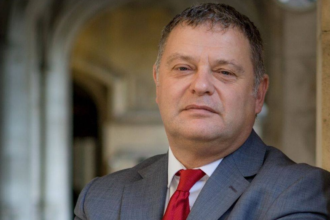Senior government officials first learned recently of the likelihood of more charges against Axel Rudakubana, the suspect in the Southport murders. Although a government spokesman has refuted claims of hiding information, the timing and openness of these latest events have caused serious concerns among Conservative Party aspirants for leadership.
What Are the New Charges Filed Against Rudakubana?
Axel Rudakubana, an eighteen-year-old already under murder allegations, is now also indicted under two more laws. Under Section 58 of the Terrorism Act 2000, prosecutors lately accused him of creating a biological toxin in breach of Section 1 of the Biological Weapons Act 1974 and of possessing a document intended to assist in conducting or planning an act of terrorism.
On Tuesday, prosecutors proceeded with these additional charges after getting consent from top government law officials. According to sources, this permission was asked for just a few weeks ago and given “within days.”
What Is Known About the Suspect's Previous Charges and Background?
Three little girls—six-year-old Bebe King, seven-year-old Elsie Dot Stancombe, and nine-year-old Alice Dasilva Aguiar—were killed in the Southport murders—of which Rudakubana stands accused. The terrible incident happened on July 29 at a dancing lesson with a Taylor Swift theme. Already under murder allegations, Rudakubana was booked for a pre-trial hearing in Liverpool on Friday, October 25. The hearing was rescheduled, nevertheless, to consolidate all charges and is now set for Wednesday, October 30, at Westminster Magistrates Court.
Differentiating the murders from the new accusations linked to terror-related material possession, Counter-terrorism Police have underlined that they are “not currently treating the Southport attack itself as a terrorist incident.”
Why Is the Government Response Under Scrutiny?
Conservative leadership contenders Robert Jenrick and Kemi Badenoch, who voiced worries about whether vital information had been kept from the public, have asked questions about these extra costs. Jenrick expressed his critique candidly, implying that openness had been compromised.
For months, Jenrick said, we were informed this was not a terror-related incident. “And yet we have discovered that the suspect, reportedly reading al-Qaeda manuals, had access to lethal drugs like ricin and was Given the public interest; I believe it is a relevant issue to probe: why was this material not made public earlier? I am asking the prime minister and public authorities what they knew when they learned it and why it was taken not to be more honest and open with the people.
Kemi Badenoch expressed related issues and advised more research on the subject. “There are serious questions to be asked of the police, the CPS, and also of Keir Starmer’s response,” she said, implying that the matter should be discussed in Parliament without citing specific facts.
How Have Law Enforcement and CPS Explained the Timing of Charges?
The police released a statement adamantly refuting any claims of public information being hidden. “We have certainly not been hiding anything from the public,” they said. Law enforcement personnel clarified that public disclosure of specifics of a live investigation is unusual.
The Crown Prosecution Service (CPS) also commented, noting the complexity of the case as a determinant of the timing of the fresh charges. Emphasising that the possession of terror-related materials is a different offence, the CPS underlined that the Southport murders are not being handled as a terrorist crime.
“To label an attack as terrorism, it would need to have been an attempt to advance a political, religious, racial, or ideological cause,” the CPS said. “It’s not clear what possible drive there might have been.” Authorities also said more conjecture on the issue would compromise the judicial case.
Why Are Authorities Urging the Public to Avoid Speculation?
The community of Southport suffers more over the sad events when the extra charges surface. Speaking to the people, Home Secretary Yvette Cooper underlined the need to let the court process run free from intervention.
“People in Southport will surely find these extra fees upsetting,” Cooper said. “Getting justice for Bebe, Alice, and Elsie, as well as for their devastated families and all those impacted by the attack, is very vital. Nobody ought to expose that to danger.
She further said, “The police and prosecutors have an important job to do in their investigation, pursuing every avenue and taking the action they need ahead of the trial.” “We have to help them and guarantee that everything feasible is done to deliver justice.”
This call for respect for the legal system and patience comes amid increasing criticism of the government’s handling of public information release scheduling and policies. The sensitive nature of the current court case and its continuous nature underscore the careful balance authorities have to keep in negotiating complex inquiries and satisfying public interest for openness.
New Asthma Treatment Could Revolutionize Care After 50 Years of No Breakthroughs








